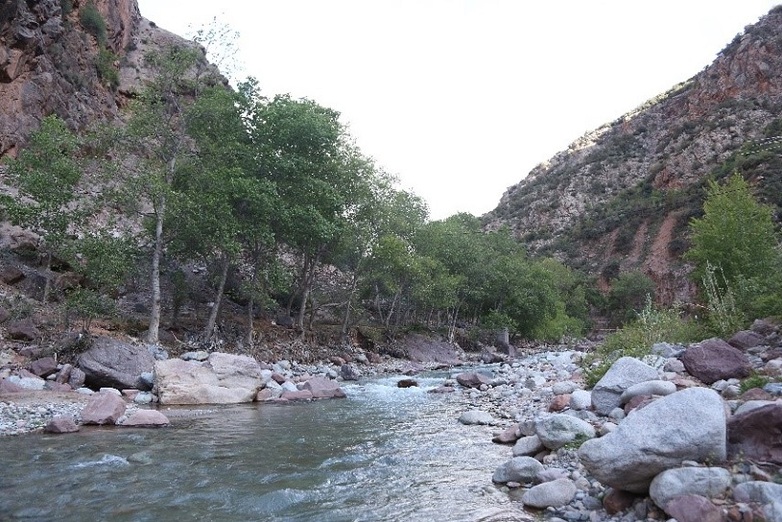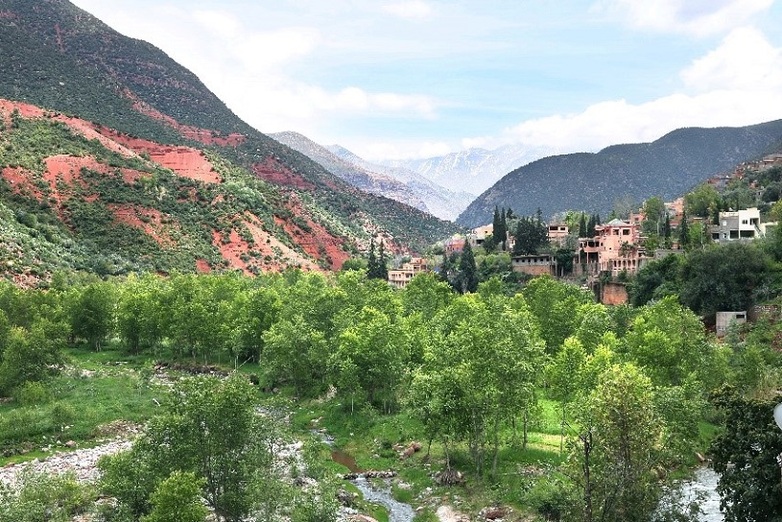Making livelihoods in Morocco more resilient
Territoires Durables – Resilient Livelihoods in Morocco
-
Client
Federal German Ministry for Economic Cooperation and Development (BMZ)
-
Co-financier
Ministry of Foreign Affairs of Denmark
-
Country
-
Political sponsors
More
-
Runtime
2024 to 2029
-
Products and expertise
Climate, environment, management of natural resources
Context
In Morocco, rural areas and the outskirts of cities are marked by poverty and they were particularly impacted by the 2023 earthquake. A significant part of the population relies on natural resources, especially water, to pursue agriculture, handicrafts, and rural tourism. Even before the disaster, they faced limited resilience to environmental and climate changes The earthquake exacerbated resource degradation, increased economic vulnerability, and made access to water even more difficult.
 © GIZ
© GIZObjective
The population in the High Atlas areas is using natural resources, particularly water, more sustainably and is less exposed to the risks of natural hazards.
 © GIZ
© GIZApproach
In response to the earthquake, the Moroccan government launched bilateral reconstruction project operating in four areas:
- Participatory Water Governance: The project introduces Morocco's first river contract in the Ourika Valley, engaging stakeholders to manage water resources, quality, and risks collaboratively.
- Resilient Water Infrastructure: It works to rehabilitate water sources and employs nature-based solutions, such as flood protection and erosion control.
- Rural Economic Development: It supports cooperatives and micro, small and medium-sized enterprises (MSMEs) to introduce water-friendly value chains.
- Scaling Proven Practices: It trains national and local actors regarding successful resilience-building approaches.
The project is co-financed by the German Ministry for Economic Cooperation and Development and the Danish Ministry of Foreign Affairs.
Last update: December 2024






